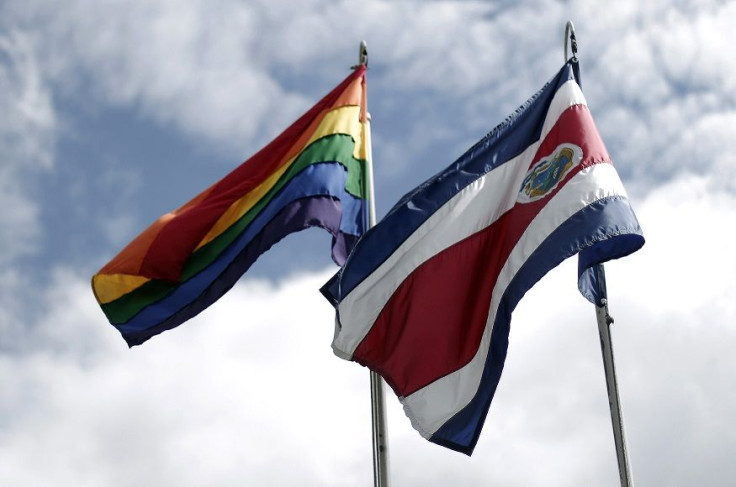Costa Rica Recognizes First Gay Common-Law Marriage With Central America's First Legally Recognized Same-Sex Relationship

A same-sex couple from Costa Rica were granted a common-law marriage Tuesday, making them the first legally-recognized gay couple in Central America, the Tico Times reported. A judge at the city's Family Court granted partners Gerald Castro and Cristian Zamora a common-law marriage based on an amendment to the Youth Code in July 2013 that mandated common-law marriages should exist regardless of gender and "without discrimination against their human dignity."
The decision, which will affect cases throughout the country, did not allow Castro and Zamora to officially marry, but instead granted them a common-law marriage, which provides the same benefits of a traditional marriage -- guaranteeing the rights to inheritance, social security, insurance and visitation rights. However, it required the approval of a judge after a couple has been together for at least three years, according to the Tico Times.
The amendment to the Youth Code drew international attention when it was first passed, with The Independent and Gawker each suggesting that Costa Rica allowed same-sex unions by mistake. José María Villalta, a member of the left-wing Frente Amplio party and the author of the amendment, said at the time that "during the discussion in the first debate, we explained that the Law of Young People [Youth Code] should be interpreted with this sense of opening to gays and no one objected," according to The Independent. Assuming there was no resistance, Villata attached the amendment to the bill.
However, it has taken two years for the results of the bill to have a tangible effect, with several other same-sex common-law marriage applications tied up in court.
"This is a big step forward," said Marco Castillo, president of Diversity Movement, the Costa Rican lesbian, gay, bisexual and transgender advocacy group. "This is the first time that the law has been recognized as such."
The interpreted clause of the Youth Code only applies to Costa Ricans between the ages of 12 and 35, so the consequences of the decision may be limited and leaves it, and any following cases, subject to possible legal challenges. The decision may also open up the possibility of adoptions by gay couples, as it could allow both partners, instead of an individual, to officially adopt a child, according to the Tico Times.
Resistance in Costa Rica to the decision and gay marriage is still strong. While a bill is currently pending in the country's Legislative Assembly to approve civil unions, evangelicals in the legislature have been working to slow down its passage.
The decision upset Jose Francisco Ulloa, the bishop of the city of Cartago, who said that he agreed that "people with this special inclination have rights like any citizen, but these are never equal to a normal, natural marriage, like we have in Costa Rica between a man and a woman," according to the Guardian.
Despite the opposition from conservative groups, supporters of LGBT rights in the nation were enthusiastic, if cautious, about the decision.
“This is an important accomplishment but it gives us a panorama of how much more we need to do,” Francisco Madrigal, political affairs director for the Center for Research and Promotion of Human Rights in Central America (CIPAC), said to the Tico Times.
© Copyright IBTimes 2024. All rights reserved.






















